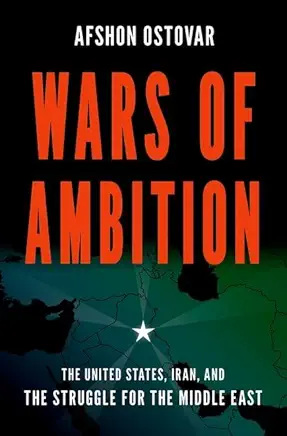
Ostovar, Afshon
product information
description
of one of the most complex and important conflicts in the world--the battle to dominate the Middle East regional order, from 2003 to the present When President George W. Bush took office in January 2001, America's influence in the Middle East was relatively strong, and adversarial states were largely marginalized and contained. The September 11 attacks upended all of this and prompted the Bush administration's bold plan to remake the Middle East through a war in Iraq. By bringing liberal democracy to Iraq, Bush hoped that the country would be a springboard for the spread of democracy to neighboring authoritarian states, aiming to make the region not only more stable, prosperous, and amenable to Western values but also more friendly and accepting toward Israel. Yet the vast disruption that the war caused created an opportunity for Iran to advance its own opposing ambitions. Iran strove to turn the Middle East into a bastion of resistance to Western hegemony and bring an end to Israel's existence as a Jewish state. The resulting clash over the future regional order not only intensified the Iraq war, it reverberated in states across the region. With the Arab Spring and the outbreak of new conflicts, the US-Iranian showdown became entwined in a much more complex struggle, one which drew in other regional and foreign powers that all pursued differing agendas. Emerging from the chaos was an empowered Iran and a deeply unsettled broader region in which nominally pro-Western states began to recalibrate their relations with Washington even as they welcomed deeper roles for its key rivals: Russia and China.
In Wars of Ambition, Afshon Ostovar explores the evolution of the long and metastasizing conflict as it unfolded over a span of more than two decades. Not just a sweeping account of the dynamic interaction between America's Middle East policies and ambitious regional states on the receiving end, it also provides a powerful analysis of conflicting visions of the future that transcend regional politics. With Iran's rise and its revisionist campaign running in concert with those of Russia and China, the contest for the Middle East has become a microcosm of a larger geopolitical battle between those aiming to preserve the American-led global order and those seeking to overturn it. Ostovar's vivid history of this enormously complex conflict shows how the battle for the Middle East reflects the politics and dividing lines of an emergent multipolar world.
In Wars of Ambition, Afshon Ostovar explores the evolution of the long and metastasizing conflict as it unfolded over a span of more than two decades. Not just a sweeping account of the dynamic interaction between America's Middle East policies and ambitious regional states on the receiving end, it also provides a powerful analysis of conflicting visions of the future that transcend regional politics. With Iran's rise and its revisionist campaign running in concert with those of Russia and China, the contest for the Middle East has become a microcosm of a larger geopolitical battle between those aiming to preserve the American-led global order and those seeking to overturn it. Ostovar's vivid history of this enormously complex conflict shows how the battle for the Middle East reflects the politics and dividing lines of an emergent multipolar world.
member goods
No member items were found under this heading.
Return Policy
All sales are final
Shipping
No special shipping considerations available.
Shipping fees determined at checkout.







